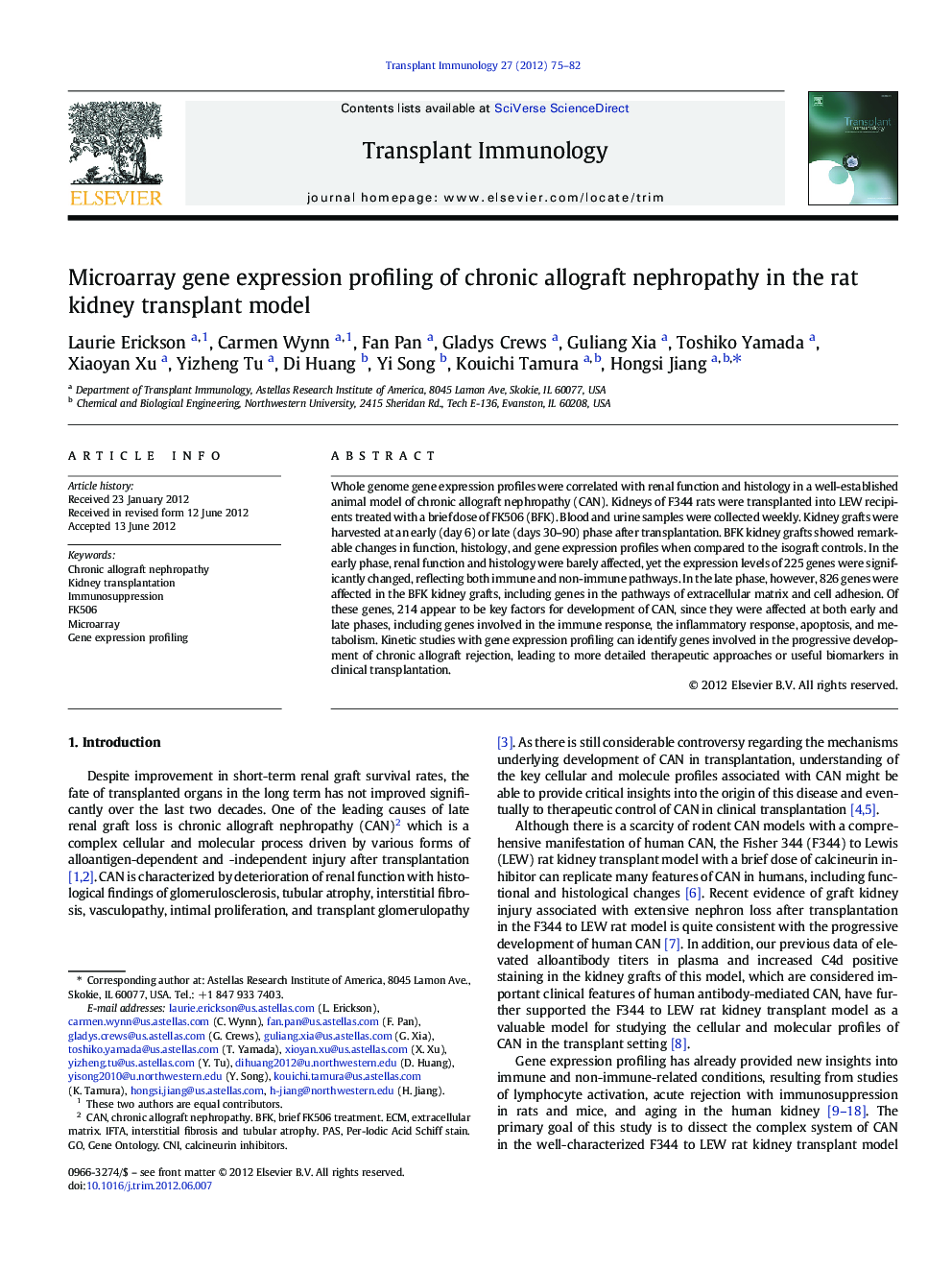| Article ID | Journal | Published Year | Pages | File Type |
|---|---|---|---|---|
| 3392130 | Transplant Immunology | 2012 | 8 Pages |
Whole genome gene expression profiles were correlated with renal function and histology in a well-established animal model of chronic allograft nephropathy (CAN). Kidneys of F344 rats were transplanted into LEW recipients treated with a brief dose of FK506 (BFK). Blood and urine samples were collected weekly. Kidney grafts were harvested at an early (day 6) or late (days 30–90) phase after transplantation. BFK kidney grafts showed remarkable changes in function, histology, and gene expression profiles when compared to the isograft controls. In the early phase, renal function and histology were barely affected, yet the expression levels of 225 genes were significantly changed, reflecting both immune and non-immune pathways. In the late phase, however, 826 genes were affected in the BFK kidney grafts, including genes in the pathways of extracellular matrix and cell adhesion. Of these genes, 214 appear to be key factors for development of CAN, since they were affected at both early and late phases, including genes involved in the immune response, the inflammatory response, apoptosis, and metabolism. Kinetic studies with gene expression profiling can identify genes involved in the progressive development of chronic allograft rejection, leading to more detailed therapeutic approaches or useful biomarkers in clinical transplantation.
► Kidney chronic rejection model using F344 donor and Lewis recipient rats. ► Histology, function, and gene expression were evaluated progressively. ► Gene expression profiling is correlated with histology and function in this model. ► 214 genes are significantly affected at both early and late timepoints.
